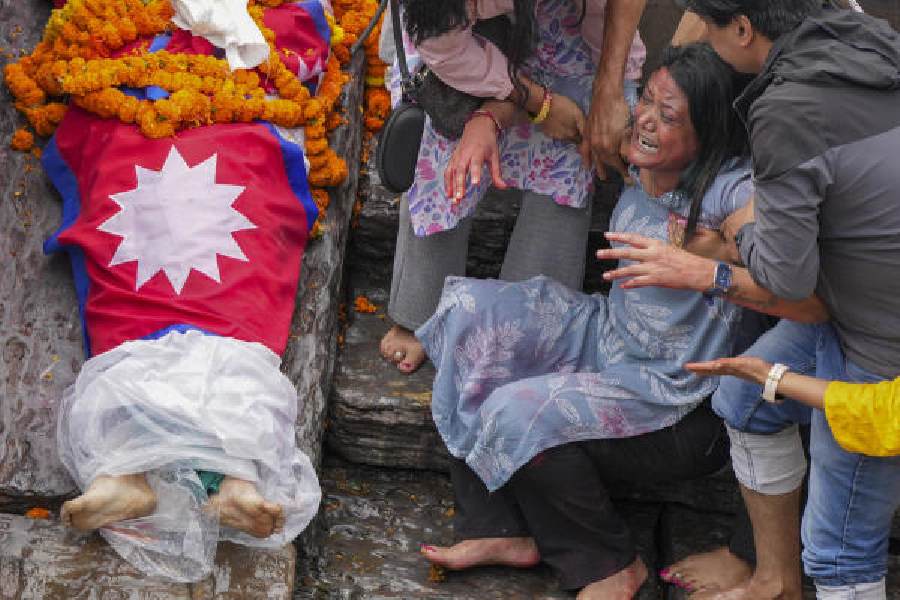Nepal's days of rage, when its young people won the ouster of the Prime Minister, left the door open to the most unthinkable outcomes — even rumours about the restoration of a dethroned king.
That turned out to be a brief royalist dream. It is a former chief justice, Sushila Karki, who now leads Nepal after last week's protests and arson attacks, not King Gyanendra, who ended his family's 449-year-old dynasty by abdicating in 2008. And with that, the door swung shut on the fantasy of remaking Nepal as a kingdom.
"The young people gave no sense that they wanted the monarchy back," only that they were furious at the post-monarchical establishment, according to Amish Mulmi, 41, an author who writes about Nepal and its geopolitics. "They just didn't want these parties back."
While the Gen Zs lack a unifying figure, for now, there is another political idea waiting in the wings: an alliance of monarchists who want to replace the carousel of republican leaders with a uniform allegiance to the crown. Monarchist groups had risen up in March to hail the former king and demand his restitution, only to be put down forcibly by the state police.
The monarchists have at least some common ground with the gigantic Gen Z protest movement, including the will to rush the barricades. One pro-royalist protester was shot dead in the earlier violence, at least 70 people were injured, and others were taken into custody.
Dhawal Shumshere Rana, the general secretary of the Rashtriya Rajatantra Party, a small but significant pro-monarchy party, calls the king a "symbol of authority that was necessary to keep the country united". His vision calls for a restored monarchy with Hinduism as a state religion.
Rana, a political scientist and former mayor of the city of Nepalganj, knows Gen Z was not calling for a restoration. He, too, believes in democracy, and wants a constitutional monarchy, not the return to an absolute monarch. Yet historically, "everyone would accept the king as the leader of the nation," he said. That was a unifying bond, and "the people are used to that kind of authority".
Rana agreed that now is not the time for a royal restoration. He has accepted his party’s fifth-place showing in parliamentary elections in 2022 as a defeat for the cause. But he has an eye on the future. A "counterrevolution" against the Gen Zs by the three big parties after the next elections "could bring in a backlash again", said Rana. "That's the point at which monarchy could be one option."
New York Times News Service










